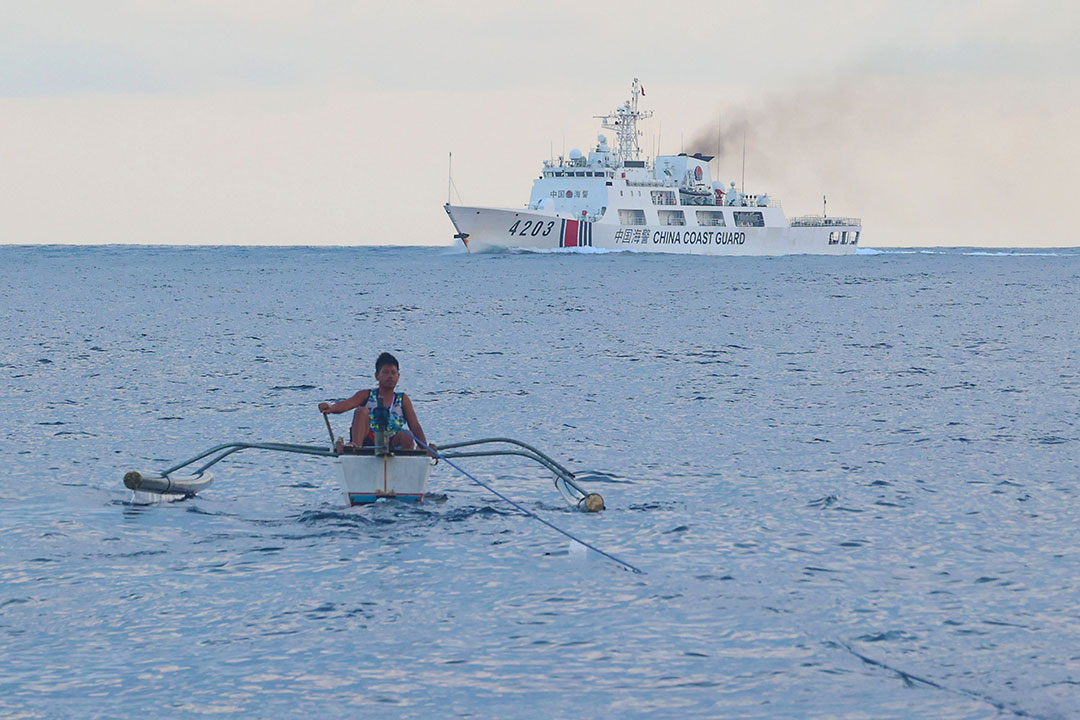Sea dispute with China should be key election issue in 2025 — analysts

By Kyle Aristophere T. Atienza, Reporter
THE ECONOMIC importance of the Philippines’ exclusive economic zone (EEZ) in the South China Sea should be a key issue in the 2025 midterm elections that should not be overshadowed by concerns about spiraling prices, political analysts said at the weekend.
“It is important for advocates to highlight the economic dimensions of foreign relations in general, especially the lives of those who are directly affected in the West Philippine Sea,” Anthony Lawrence A. Borja, a political science professor at De La Salle University, said in a Facebook Messenger chat.
“Many Filipinos are worried more about their wallets than territorial integrity and security, issues they deem remote due to a lack of understanding, the absence of recognizable impacts, or a sheer lack of empathy for those directly affected,” he added.
Some political quarters may also exploit the issue by underestimating the effects of Chinese aggression at sea on Philippine food and energy security, Mr. Borja said.
He noted that based on opinion polls, many Filipinos only care about an issue that affects them directly, and pro-China politicians could exploit this by amplifying the effects of a potential war on inflation.
Prolonged rains brought by La Niña starting June threaten the farm sector and efforts to cool inflation that quickened to 3.8% in April from 3.7% in March amid spiraling food prices.
A Pulse Asia Research, Inc. poll in March showed inflation was still the public’s most urgent concern.
Tensions between the Philippines and China have worsened in the past year as Beijing continues to block resupply missions to Second Thomas Shoal, where Manila grounded a World War II-era ship in 1999 to assert its sovereignty.
The Philippines has reported increased Chinese presence in features near Recto Bank, which is believed to hold as many as 5.4 billion barrels of oil and 55.1 trillion cubic feet of natural gas.
On Sunday, a group of Filipino fishermen from Zambales, Pangasinan, Bataan and Palawan provinces said their fishing rights within the Philippines’ exclusive economic zone are continuously “threatened by harassment and intimidation by China’s coast guard and maritime militia who are keeping Filipinos away from the rich waters.”
“We and our families are enduring further hunger and impoverishment due to these Chinese activities,” the Bigkis ng Mangingisda Federation said in a statement, citing coral reef destruction by China.
“In addition to reef damage, tailings from the mines linked to Chinese business interests cascade down the mountains, contaminating rivers and municipal waters, killing fish and other living marine resources,” it added.
Philip Arnold “Randy” P. Tuaño, dean of the Ateneo de Manila University School of Government, said the Marcos government may cite efforts it has taken to diversify trade away from China, and the planned economic corridor on the main island of Luzon.
“Because of the intensification of trade wars between China and the US, the latter has been pushing for increased trade and investment links with the Philippines, for example, by prioritizing the Luzon investment corridor and increasing purchases of semiconductors and other electronic items for America’s manufacturing push,” he said in an e-mail.
Philippine Ambassador to the US Jose Manuel D. Romualdez earlier said Washington and Tokyo are expected to marshal $100 billion (P5.8 trillion) worth of investments in the country in the next 5 to 10 years.



